Education
Uzodimma commissions FUTO’s Engineering Studio and ICT Hub
Published
6 months agoon
By
Ekwutos Blog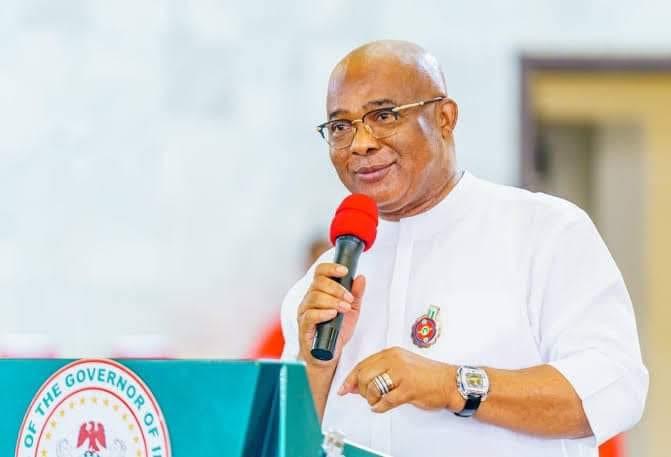
GOVERNMENT OF IMO STATE
PRESS RELEASE
…Lauds Shell, NNPCL and Joint Venture enture Partners.
Governor of Imo State, Sen. Hope Uzodimma on Thursday commissioned the Federal University of Technology, Owerri, Engineering Studio and ICT Hub, jointly constructed by the Shell Petroleum Development Company of Nigeria, the Nigeria National Petroleum Company Limited and their Joint Venture Partners – TotalEnergies and Agip Oil Company and the Nigeria Content Development and Monitoring Board
( NCDMB).
In his remarks ahead of the formal inauguration of the facility, Uzodimma lauded the management of Shell, NNPCL, and their partners for their thoughtfulness on the project which he said, aligns perfectly with his administration’s digital transformation agenda.
The project is a furnished 100 – seater ICT facility equipped with computers, smart boards, and two 50 – seater practice workshops to strengthen learning.
Represented by his Commissioner for Digital Economy and E – Government, Dr. Chimezie Amadi, Uzodimma said, “this landmark project, generously sponsored by NNPC, SPDC, Total Energies, and Agio JV’s Asaa North, Ohaji South Development, represents a significant milestone not only for Ohaji South but for the entire Imo State.”
Government Uzodimma remarked: “This initiative aligns perfectly with the digital transformation agenda of our administration. As we continue to build a robust digital infrastructure, fostering a thriving digital economy remains at the heart of our vision for Imo State. Our focus is clear: to empower our people with the digital skills necessary to thrive in an increasingly globalized and technologically advanced world.
“We are already making great strides through our flagship SkillUpImo Programme, which has successfully trained over 25,000 of our youths in cutting-edge digital technologies and entrepreneurial skills. Through this initiative, we have seen a surge in tech-driven startups and innovation within the state, firmly positioning Imo as a leading hub for digital talent in Nigeria.
“Our Imo Digital City Project is another cornerstone of this agenda, providing world-class digital infrastructure, smart technologies, and the environment needed for businesses and startups to flourish. These initiatives are part of a broader strategy to not only attract investments but also equip our youth with the tools they need to be part of the global digital workforce.
“The Engineering Design Studio and Innovation Hub we are commissioning today plays a critical role in this vision. It will serve as a center for innovation, creativity, and practical engineering training, producing talents that will not only transform our local economy but also contribute to the global workforce. In an era where the Fourth Industrial Revolution is reshaping the global landscape, this facility will empower our people with the skills and knowledge necessary to lead in fields such as engineering, robotics, and digital innovation.
“We deeply appreciate the efforts of our partners in NNPC, SPDC, Total Energies, and Agio JV, who have invested in the future of Imo State by supporting this critical project. Your commitment to human capacity building aligns perfectly with our goals, and together, we will continue to drive innovation, skills development, and sustainable economic growth for our people.
“As we open the doors to this hub of creativity and technology today, let us remember that the future of Imo lies in our collective ability to equip our people with the tools to succeed in the digital age. Together, we will continue to move our state forward, ensuring that no one is left behind as we march toward a brighter, digital future.”
Earlier in their speeches, the Managing Director of Shell, Dr. Osagie Okumbor and Chief Upstream Investment Officer of NNPCL, Bala M. Wunti (on behalf of their Joint Venture Partners), expressed joy collaborating to improve access to quality education for every Nigerian, particularly as it concerns advancing the course of digital learning badly needed in the 21st century.
“Federal University of Technology Owerri (FUTO) was selected to benefit from institutional strengthening in the catchment areas of SPDC’s Asda North Ohaji South Gas Development Project… The journey to establish this facility was driven by a vision to enhance critical education infrastructure, support access to high-demand IT skills and inspire growth of the IT ecosystem in Imo State and South East Nigeria,” Dr. Okumbor maintained.
Wunti said: “We will consistently champion the implementation of sustainable community development projects that will positively impact the lives of the citizens of this country.” He added, “we believe that providing access to modern technology and resources is a crucial step towards bridging the digital divide and fostering inclusive growth.”
An elated Vice Chancellor of FUTO, Prof (Mrs.) Nnenna N. Oti, who remarked that the project “aligns with the critical mandate of the University,” noted that it was “so well built and equipped to international standard that I have fondly nicknamed it ‘FUTO Harvard Building’.”
Prof Oti thanked Governor Uzodimma for gracing the occasion and assured all the facilitators of the project, of the University’s preparedness to put it to optimum use in the expectation that doing so will encourage them to “gladly do more for us.”
Oguwike Nwachuku
Chief Press Secretary and Media Adviser to the Governor
October 24, 2024.
You may like
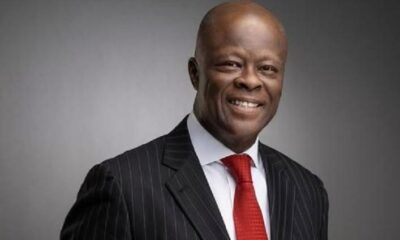

US tariffs won’t have much effect on Nigeria – FG


Wike hosts suspended Rivers lawmakers in UK
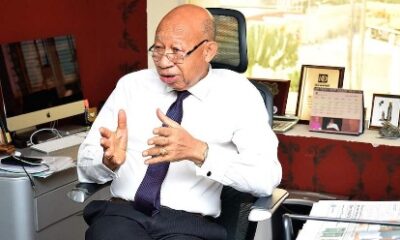

Pascal Dozie, Founder Of Diamond Bank Passes Away At 85
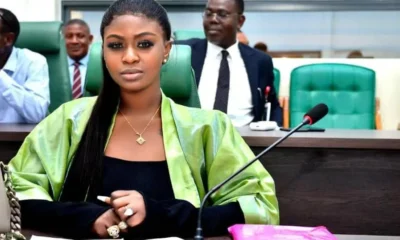

Tuface’s lover Natasha Osawaru replaced as Deputy Leader after shake-up in Edo Assembly


Nigeria seeks to host 2030 Commonwealth Games
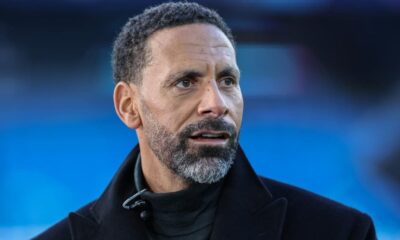

Garnacho has to leave Old Trafford, make way for Osimhen – Rio Ferdinand
Education
2025 mock UTME: JAMB disburses over N397m in transport allowances to officials
Published
1 day agoon
April 7, 2025By
Ekwutos Blog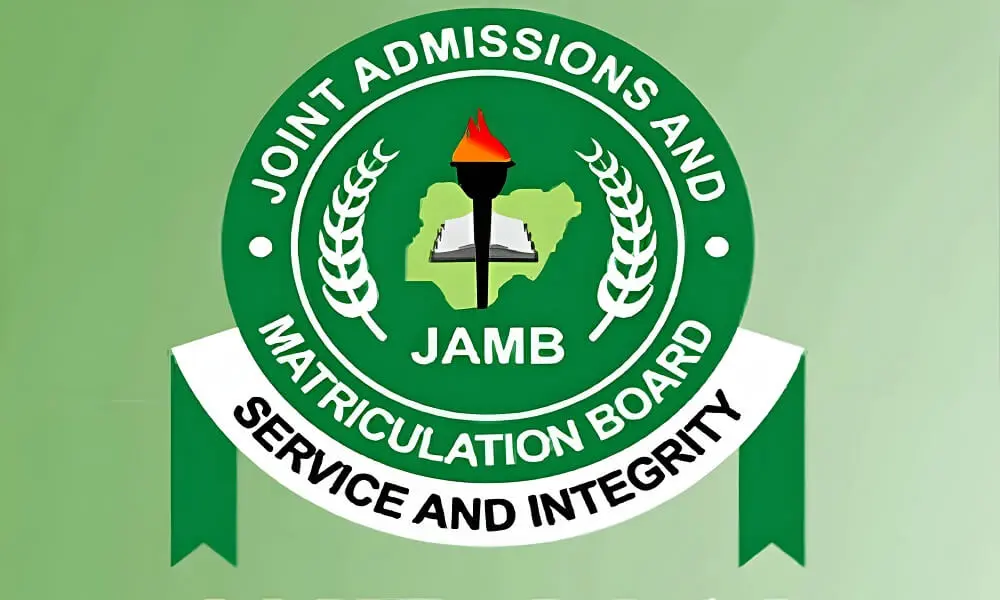
The Joint Admissions and Matriculation Board, JAMB, said it has disbursed N397,030,900 as transport allowances to 1,909 officials participating in the conduct of the 2025 Mock Unified Tertiary Matriculation Examination, UTME, scheduled for April 10, 2025.
The Director of Finance, Mufutau Bello, disclosed this at a meeting convened to evaluate the Board’s readiness for both the mock examination and the main UTME.
According to Bello, the amount released so far for transport allowances represents only the first tranche of payments, covering one-third of the total officials involved in the exercise.
Stressing the critical national importance of the two examinations, he said, “The mock exercise is the first phase of our core mandate, and we must, as always, distinguish ourselves. The nation relies on the success of this exercise; any shortcomings could tarnish the integrity of our education system.
“Much is at stake, including the dignity of our processes, the tertiary education system, and substantial financial resources—over N397,030,900 has been paid as transport allowances to the 1,909 officials travelling for the mock exercise scheduled for the 10th April, 2025.
“This amount represents only the initial phase, accounting for one-third of the total number of officials involved.”
Staff members of the Board pledged their full commitment to ensure the successful and hitch-free conduct of both exercises across the country.
While acknowledging public concerns over local travel allowances, they clarified that such discussions often come from a limited understanding of the logistical scope involved in the nationwide examination process.
Education
Nigerians Govt orders universities, polytechnics to publish budget, others on websites
Published
2 days agoon
April 6, 2025By
Ekwutos Blog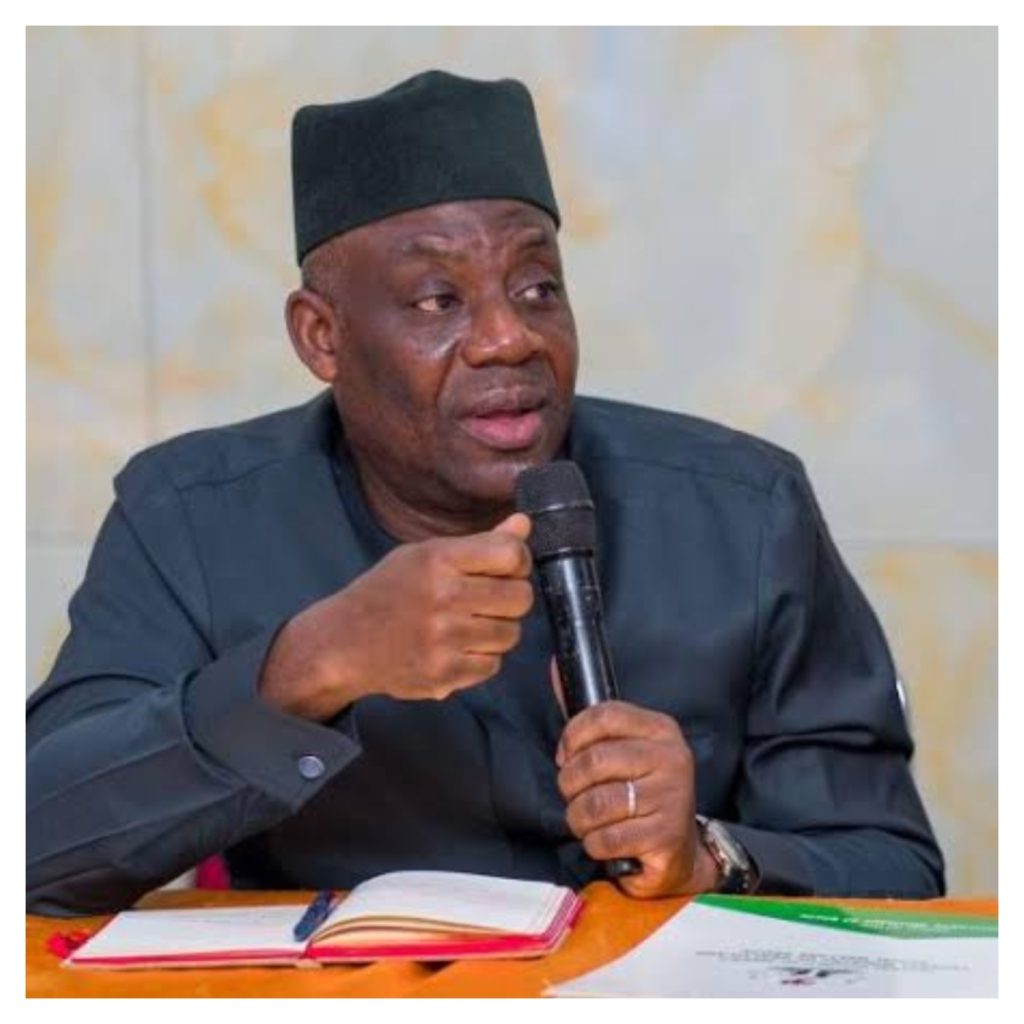
The Nigerian government has directed all heads of federal universities, polytechnics, colleges of education and other higher institutions to disclose their annual budget and other institutional data for public scrutiny.
The Minister of Education, Tunji Alausa, gave this directive in a statement released on Saturday by the ministry’s spokesperson, Boriowo Folasade
The minister said that educational institutions should publish their budget breakdown, research grant, Tertiary Education Trust Fund Allocation as well as student population on their official websites.
According to the minister, the move is to enshrine accountability and transparency in Nigeria’s education sector.
“In a bold move to entrench transparency, accountability, and good governance in Nigeria’s tertiary education system, the Honourable Minister of Education Dr Maruf Tunji Alausa has issued comprehensive directive mandating all Federal Vice- Chancellors, Rectors and Provost to publish key institutional data on their official websites with immediate effect. Aligning Nigeria’s higher education management with global best practices.
“Each institution must provide its Annual Budgetary Allocation in full detail, including the breakdown of expenditure across three core areas: personnel cost overhead costs and capital expenditure. In addition,
institutions are to disclose their Research Grant Revenue from the previous year.
“This data should be separated into two distinct sources: grants obtained from domestic bodies such as local industries, government agencies, or foundations; and those received from international sources, including foreign institutions, multilateral organizations, and development partners.
“Also to be displayed is the TETFund Allocation for the current year. The Institutions must clearly show the
total amount received from the TETFund, reflecting financial support for academic and infrastructural development in the present calendar year,” the statement said.
The directive further mandates the institutions to publish the total value of their endowment fund as recorded at the end of the previous year. This figure, which reflects funds donated or invested for the institution’s long-term financial health, must be updated quarterly to ensure currency and transparency.
“Finally, institutions are to present their current Total Student Population, which must be categorized into undergraduate and postgraduate levels, thereby providing a clear picture of enrolment and institutional capacity.
“The Ministry emphasizes that this information must be presented in a clear, accessible, and user-friendly format for public visibility. Websites should be structured in a way that allows the public, including parents, students, and stakeholders, to easily locate and understand these data points.
“All federal institutions are expected to comply fully with this directive and ensure that their websites are completely updated no later than May 31, 2025,” the statement added.
Ekwutosblog had earlier reported that a transparency report described Nigerian universities as a den of impunity and secrecy.
Education
Minister of Education, Dr Tunji Alausa Advocates Extension Of NYSC Scheme To Two Years
Published
3 days agoon
April 5, 2025By
Ekwutos Blog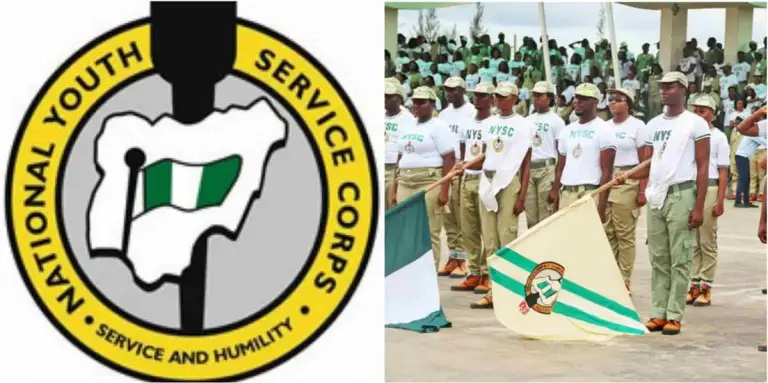
In a move that could reshape the landscape of Nigeria’s youth development and national integration strategy, the Minister of Education, Dr. Maruf Olatunji Alausa, has called for the extension of the National Youth Service Corps (NYSC) programme from its current one-year duration to two years.
Dr. Alausa made this recommendation during a high-level stakeholder engagement in Abuja, emphasizing the need for a more impactful and immersive service year that aligns with the country’s educational and developmental goals. According to the Minister, extending the NYSC duration would provide Nigerian graduates with a broader platform to contribute meaningfully to national growth, gain valuable experience, and improve their employability.
“The NYSC scheme remains one of the most important platforms for national unity, youth empowerment, and community development,” Dr. Alausa stated. “However, in light of current realities, a one-year period may no longer be sufficient to achieve the desired depth of impact. A two-year service period will allow for more comprehensive training, community engagement, and skills acquisition, especially in sectors critical to national development.”
The Minister noted that the proposal is still under consideration and will require widespread consultation with stakeholders, including the NYSC Directorate, education professionals, youth representatives, and members of the National Assembly.
Dr. Alausa also suggested that the extended programme could be restructured to include a first year focused on national service and community development, while the second year could prioritize skill acquisition, entrepreneurship training, and job placement initiatives.
Reactions to the proposal have been mixed, with some youth groups expressing concerns about the feasibility of a two-year compulsory service, particularly in a challenging economic climate. Others have welcomed the idea, noting that a longer NYSC period could provide a more structured transition from academic life to the workforce.
As debates continue to unfold, Dr. Alausa reaffirmed the Ministry’s commitment to policies that will enhance the quality of education and empower Nigerian youths for a brighter future.

US tariffs won’t have much effect on Nigeria – FG

Wike hosts suspended Rivers lawmakers in UK

Pascal Dozie, Founder Of Diamond Bank Passes Away At 85
Trending

 Trending6 months ago
Trending6 months agoNYA demands release of ‘abducted’ Imo chairman, preaches good governance
- Business6 months ago
US court acquits Air Peace boss, slams Mayfield $4000 fine

 Politics6 months ago
Politics6 months agoMexico’s new president causes concern just weeks before the US elections
- Entertainment6 months ago
Bobrisky transferred from Immigration to FCID, spends night behind bars
- Entertainment6 months ago
Bobrisky falls ill in police custody, rushed to hospital

 Politics6 months ago
Politics6 months agoRussia bans imports of agro-products from Kazakhstan after refusal to join BRICS

 Politics6 months ago
Politics6 months agoPutin invites 20 world leaders
- Politics1 year ago
Nigerian Senate passes Bill seeking the establishment of the South East Development Commission.

